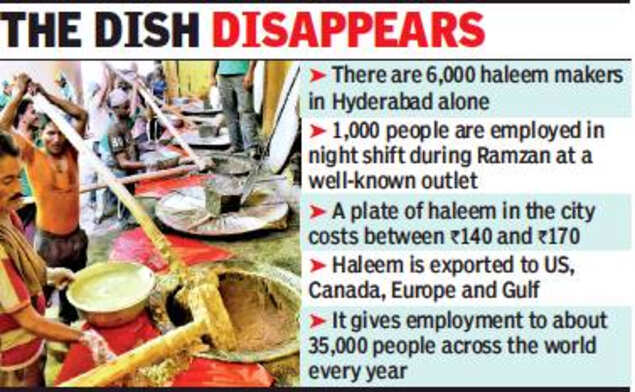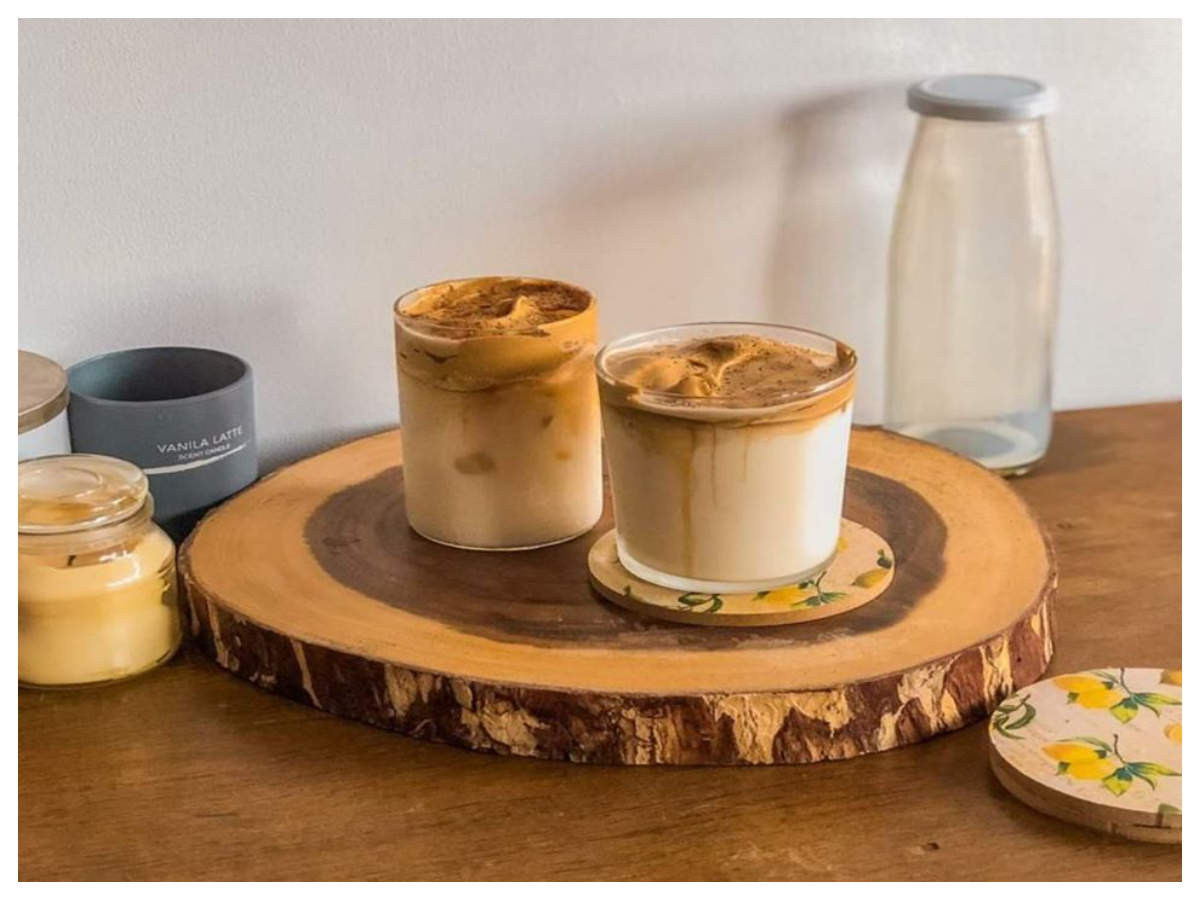Hyderabad: No haleem on your plate this year as threat from coronavirus wipes out booming Ramzan biz

HYDERABAD: It is not haleem if it is not prepared in Hyderabad, so they say. The demand is such that the dish has grown into a multi-crore industry in the last one decade with the delicacy feted not just in India but across the world.
Thanks to Covid-19 pandemic and an extended lockdown, the Persian delicacy -- prepared during the month of Ramzan --won’t be made for the first time in the last 40 years. A decision to not make haleem this Ramzan was taken by the Hyderabad Haleem Makers’ Association (HHMA) and the Twin Cities Hotel Owners’ Association.

MA Majeed, president of HHMA, said they took the decision keeping in view of the seriousness of the pandemic. “The lockdown has already impacted the business of restaurants. Haleem made during Ramzan fetches huge moolah but we cannot risk the lives of people,” he said.
According to industry experts, haleem business is estimated to be anywhere between Rs 600 crore and Rs 800 crore in Hyderabad.
Mirza Ali, proprietor of Sarvi Café and Restaurant, said the financial loss would run into several crores of rupees. “Small traders and labourers who work hard to supply wheat, meat, spices and other essentials will be hit hard because of closure of haleem bhattis,” he told TOI.
Hyderabadi haleem first made its appearance in the royal kitchen of the Nizam in the 19th century. Till 40 years ago, the recipe was confined to homes. Then Irani cafes and restaurants started offering it to customers — there has been no looking back since.
Staring at huge loss, says ghota merchant
Apart from takeaways and online orders, restaurants and hotel owners leave no opportunity to reach out to customers during the Ramzan period. Mohammed Anwar, who has been supplying the essential ‘ghotas’ (large wooden spoon to mix the dish) for over 30 years, is at a loss for words. “On an average, we receive an order for nearly 1,000 ghotas from restaurants every year. However, this year, some of the orders which were placed a couple of months ago have been cancelled. I am in for a huge loss,” he rued. Similar is the fate of kalaiwalas (who coat the huge vessels before the dish is made), hundreds of shepherds who spend huge amounts to breed goats specially for Ramzan meat, farmers who supply wheat, spice traders, delivery staff, cleaners and several others.
Thanks to Covid-19 pandemic and an extended lockdown, the Persian delicacy -- prepared during the month of Ramzan --won’t be made for the first time in the last 40 years. A decision to not make haleem this Ramzan was taken by the Hyderabad Haleem Makers’ Association (HHMA) and the Twin Cities Hotel Owners’ Association.

MA Majeed, president of HHMA, said they took the decision keeping in view of the seriousness of the pandemic. “The lockdown has already impacted the business of restaurants. Haleem made during Ramzan fetches huge moolah but we cannot risk the lives of people,” he said.
According to industry experts, haleem business is estimated to be anywhere between Rs 600 crore and Rs 800 crore in Hyderabad.
Mirza Ali, proprietor of Sarvi Café and Restaurant, said the financial loss would run into several crores of rupees. “Small traders and labourers who work hard to supply wheat, meat, spices and other essentials will be hit hard because of closure of haleem bhattis,” he told TOI.
Hyderabadi haleem first made its appearance in the royal kitchen of the Nizam in the 19th century. Till 40 years ago, the recipe was confined to homes. Then Irani cafes and restaurants started offering it to customers — there has been no looking back since.
Staring at huge loss, says ghota merchant
Apart from takeaways and online orders, restaurants and hotel owners leave no opportunity to reach out to customers during the Ramzan period. Mohammed Anwar, who has been supplying the essential ‘ghotas’ (large wooden spoon to mix the dish) for over 30 years, is at a loss for words. “On an average, we receive an order for nearly 1,000 ghotas from restaurants every year. However, this year, some of the orders which were placed a couple of months ago have been cancelled. I am in for a huge loss,” he rued. Similar is the fate of kalaiwalas (who coat the huge vessels before the dish is made), hundreds of shepherds who spend huge amounts to breed goats specially for Ramzan meat, farmers who supply wheat, spice traders, delivery staff, cleaners and several others.

Coronavirus outbreak
Trending Topics
LATEST VIDEOS
City
 COVID-19 lockdown: Migrant worker tries to run away from Pune home, beaten up brutally by cops
COVID-19 lockdown: Migrant worker tries to run away from Pune home, beaten up brutally by cops  40-year-old Delhi man stabbed to death for informing owner about people drinking on rooftop
40-year-old Delhi man stabbed to death for informing owner about people drinking on rooftop  COVID-19: Shahi Imam of Fatehpuri mosque in Delhi appeals Muslims to offer prayers from homes during Ramzan
COVID-19: Shahi Imam of Fatehpuri mosque in Delhi appeals Muslims to offer prayers from homes during Ramzan  Bihar: Arrogant official loses cool, forces homeguard to to do sit-ups for enforcing lockdown rules
Bihar: Arrogant official loses cool, forces homeguard to to do sit-ups for enforcing lockdown rules
More from TOI
Navbharat Times
Featured Today in Travel
Get the app





